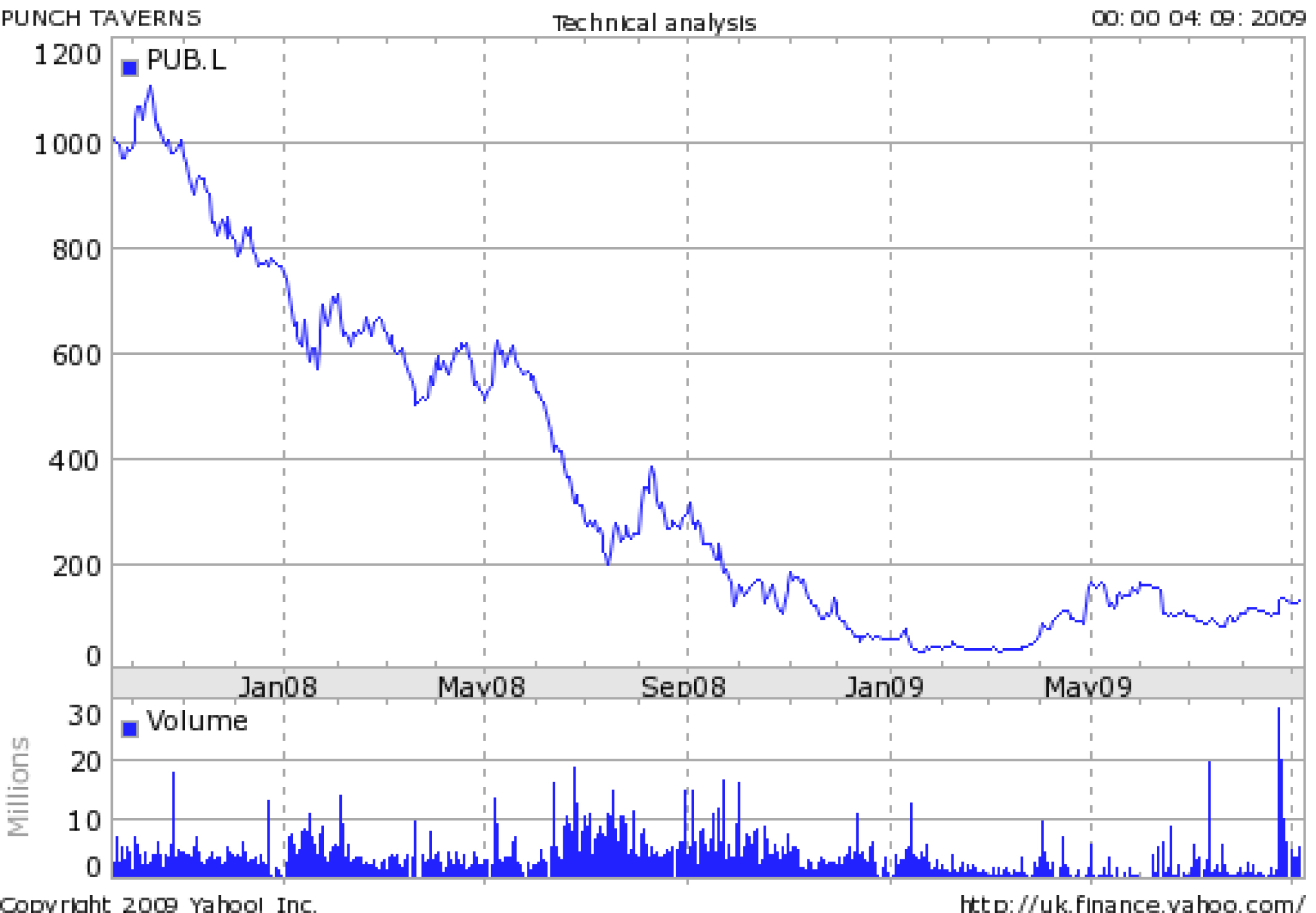Pub company Punch Taverns sells pubs to raise funds
Punch Taverns, which has over 8,300 managed, tenanted and leased pubs, is planning a GBP 45 million overhaul of Spirit, its managed pubs arm, home to restaurant brands including Chef & Brewer, in its quest to raise funds and reduce its GBP 3.5 billion debt pile.
Punch is also looking to sell a further 100 of its 850 managed pubs.
The group, which has raised GBP 400 million (EUR 456 million) from selling off its underperforming pubs and in July raised GBP 350 million (EUR 399 million) of fresh equity, also said that it would explore further pub sales to bring its debt down further still.
This year Punch established a "Turnaround Division" of about 1,250 of its most troublesome pubs.
It said that if it failed to turn these outlets around it would sell them off instead.
In a trading statement in advance of its full-year results in October (for the financial year ended 22 August 2009), Punch said that profits before tax and special items had fallen by about 11 percent.
It said that its asset disposal programme had also cut profits by a further GBP 6 million (EUR 6.8 million).
Analysts estimate that this means Punch will make pre-tax profits for the full year of about GP 160 million (EUR 183 million).
Punch has previously said that it will not pay an annual dividend this year.
This is bound to make shareholders cry into their beers, even more so as the business model of pub companies will finally come under review.
Twenty years after the “Beer Orders”, CAMRA, the Campaign for Real Ale, tabled a "super-complaint" to the Office of Fair Trading (OFT) relating to the supply of beer in pubs.
The complaint, submitted in late July, could spark a lengthy investigation by the competition watchdogs into the activities of Britain’s biggest two pub operators, Enterprise Inns and Punch Taverns, which together own about a fifth of UK’s pubs.
“Super-complaints” can be made to the OFT by a designated consumer body when it thinks that market conditions significantly harm the interests of consumers.
The OFT must publish a response within 90 days stating what action it intends to take.
CAMRA’s complaint followed hard on the heels of an announcement by the British Beer and Pub Association which revealed that, during the first six months of the year, the number of pubs closing in the UK shot up to 52 every week — up more than a third on the same period last year.
CAMRA’s complaint centres on the "beer tie", the arrangement by which pub companies such as Punch and Enterprise oblige licensees to buy beer from them, even though they may charge more than the licensee could buy it for elsewhere.
Mike Benner, CAMRA’s chief executive, reportedly said that the tie, along with high rents, were pushing up the price of a pint for Britain’s 14 million regular pub goers and forcing many pubs out of business.
Mr Benner said more than half of the pubs in the UK were run under "tie" arrangements that he claimed obliged many publicans to pay over the odds by about 50 pence a pint.
The OFT’s response to CAMRA’s complaint should be published in October.


